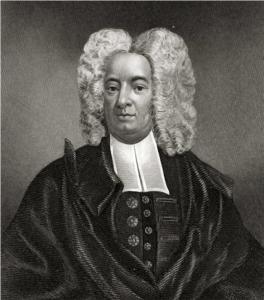• ProPublica on “Why Rapid COVID Tests Are So Expensive and Hard to Find” in the U.S. In Britain they’re delivered to your house for free. In France, Germany, and Belgium, they’re “ubiquitous and as cheap as a decent cappuccino.”
• “Scientists have evidence that SARS-CoV-2 spreads explosively in white-tailed deer and that the virus is widespread in this deer population across the United States.” Yikes.
Pennsylvania has an estimated 30 deer per square mile. It’s probably more than that here in our neighborhood, where the local herds are just part of the daily routine. This is why everybody drives under the speed limit on our street at dusk.

So far, the deer seem to be catching covid from humans, and it doesn’t seem to make the animals sick. The worry is that deer will become a “reservoir” keeping the virus in circulation, where it could develop new strains and then leap back to us.
• Shot:
While the Right is disingenuous and mercurial when it comes to many things, one thing they really do sincerely believe is that the Left “weaponizes victimhood.” Specifically, they believe that the Left doesn’t call out racism, sexism, homophobia, transphobia, whatever, out of care for those people or even themselves, but a) to make conservatives feel bad about themselves and b) to give members of those groups a pass on something. They believe it with their whole heart and soul and it informs their reality and every move they make. They also happen to deeply envy the power they believe comes from this thing we are not actually doing and very much wish to weaponize some victimhood for themselves.
Chaser: “Gomez, painting Catholics as victims, goes after his woke oppressors.”
• More than half of all churches are below average size.
• R.L. Stollar watches God’s Not Dead IV so you don’t have to: “What the Latest ‘God’s Not Dead’ Gets Egregiously Wrong — and Right — About Homeschooling.”
• This Smithsonian headline doesn’t get at the interesting part of this story: “An Archaeological Dig Reignites the Debate Over the Old Testament’s Historical Accuracy.” The interesting thing here is the way that this perennial “debate” shapes expectations which, in turn, can hamper us from seeing whatever it is we’re seeing because we expect it to support/challenge one side or the other of that hoary “debate.”
In any case, this story turns out to be about the “remnants of Edom.” And so, looked at another way, it may also be a story about the “rest of humankind.” The difference between those two things — as we’ve seen before comparing our versions of Amos 9:12 and Acts 15:17 — depends on what we bring to the story ourselves.
Here’s a fun detail from this story:
The elusive Edomites dominated the reddish mountains and plateaus around the mines. In Hebrew and other Semitic languages, their name literally means “red.” Not much is known about them. They first appear in a few ancient Egyptian records that characterize them, according to the scholar John Bartlett in his authoritative 1989 work Edom and the Edomites, “as bellicose by nature, but also as tent-dwellers, with cattle and other possessions, able to travel to Egypt when necessity arose.” They seem to have been herdsmen, farmers and raiders. Unfortunately for the Edomites, most of what we do know comes from the texts composed by their rivals, the Israelites, who saw them as symbols of treachery, if also as blood relations: the father of the Edomites, the Bible records, was no less than redheaded Esau, the twin brother of the Hebrew patriarch Jacob, later renamed Israel.
Why does the author of Genesis highlight Esau’s red hair in that story? I think it’s because that author thought that it was funny.
• This is a terrific piece of reporting from MoJo’s Madison Pauly, “Who Keeps Us Safe?” Pauly focuses on a single incident — a gripping, suspenseful story on its own — and ties it into the larger question of who is and who is not protected by “law enforcement.”
It is a story that shows, and that recognizes, the truth of Frank Wilhoit’s pithy summary of conservative ideology: “There must be in-groups whom the law protects but does not bind, alongside out-groups whom the law binds but does not protect.” This is a story about those communities that police primarily see as bound by the law, but not deserving of its protection. A story that recognizes, in other words, that the answer to “Who Keeps Us Safe?” is hugely dependent on who the “us” is that’s asking.
• The word “woke” has now run through the entire life-cycle of American slang, from its birth as a meaningful, insightful contribution to the language in the Black community to its gradual co-optation by the wider culture, and then by Madison Avenue, and then finally its transformation into an unrecognizable term, wholly unrelated to its original meaning, wielded as a weapon by defenders of the white establishment.
It’s still bitterly amusing, though, to hear so many reactionary white men proudly declaring that they will never, ever, rouse themselves from ignorant slumber. So here’s a song for them:
If you can carry a tune — or even if you can’t — I recommend singing this Mary Poppins classic as an appropriate and more-polite-than-they-deserve response to anyone to complaining about “wokeness” in your presence.












